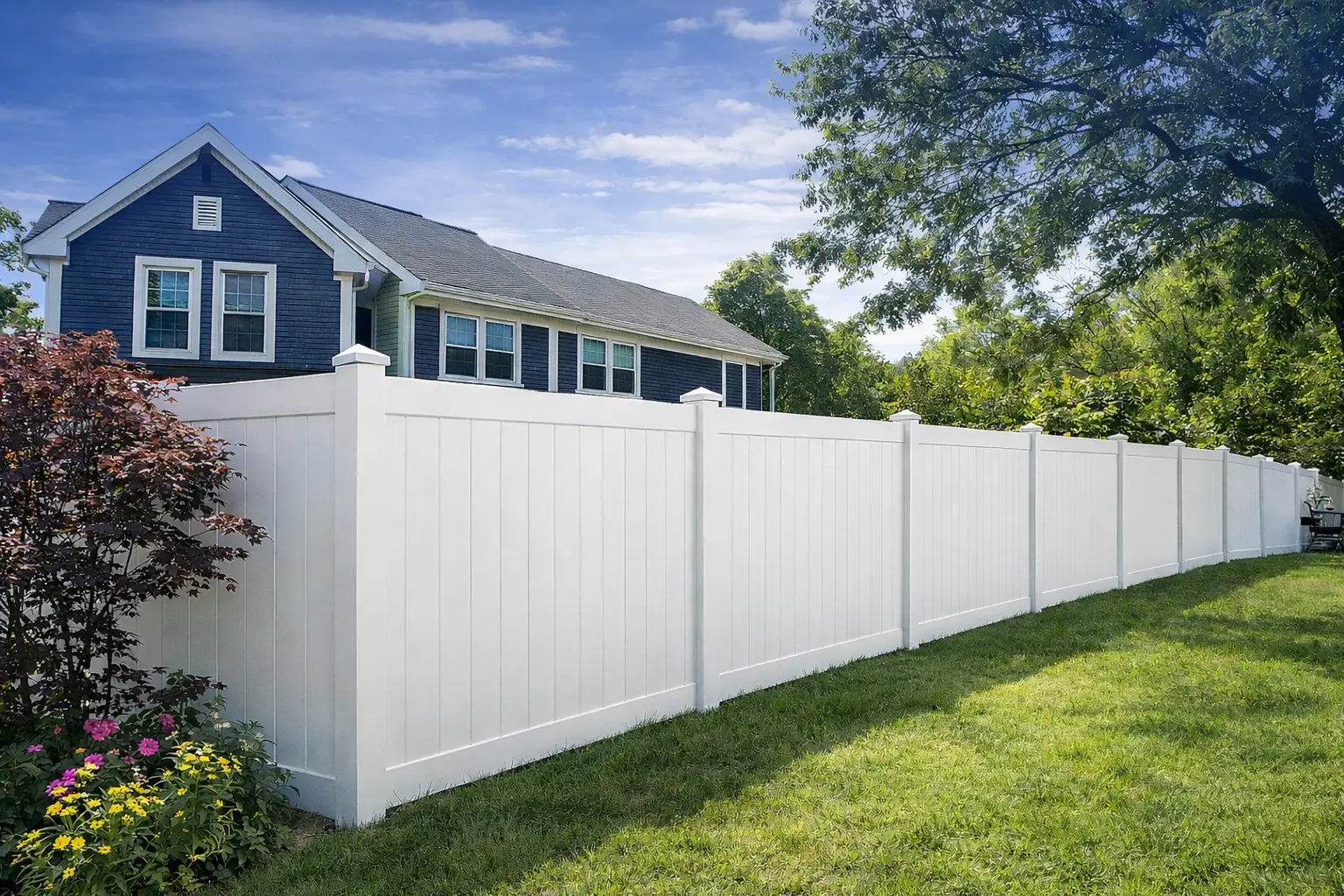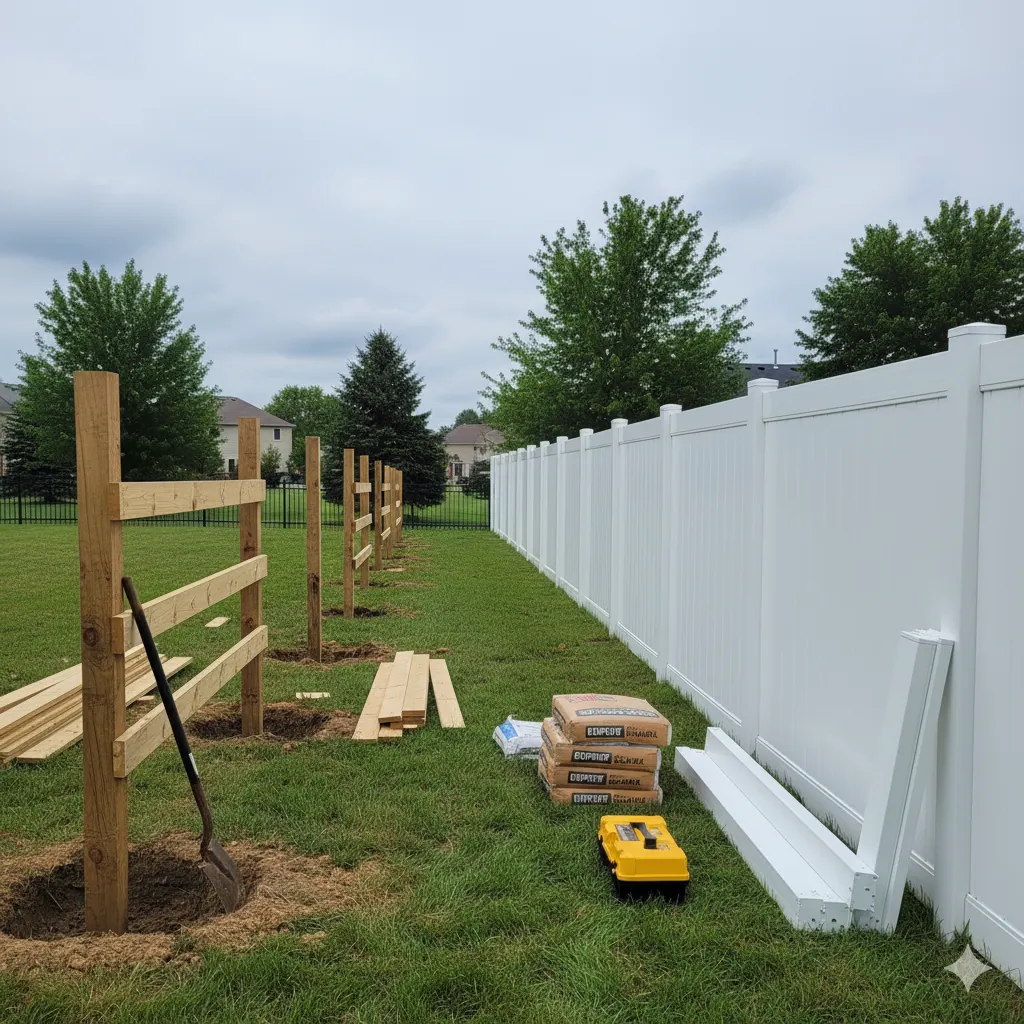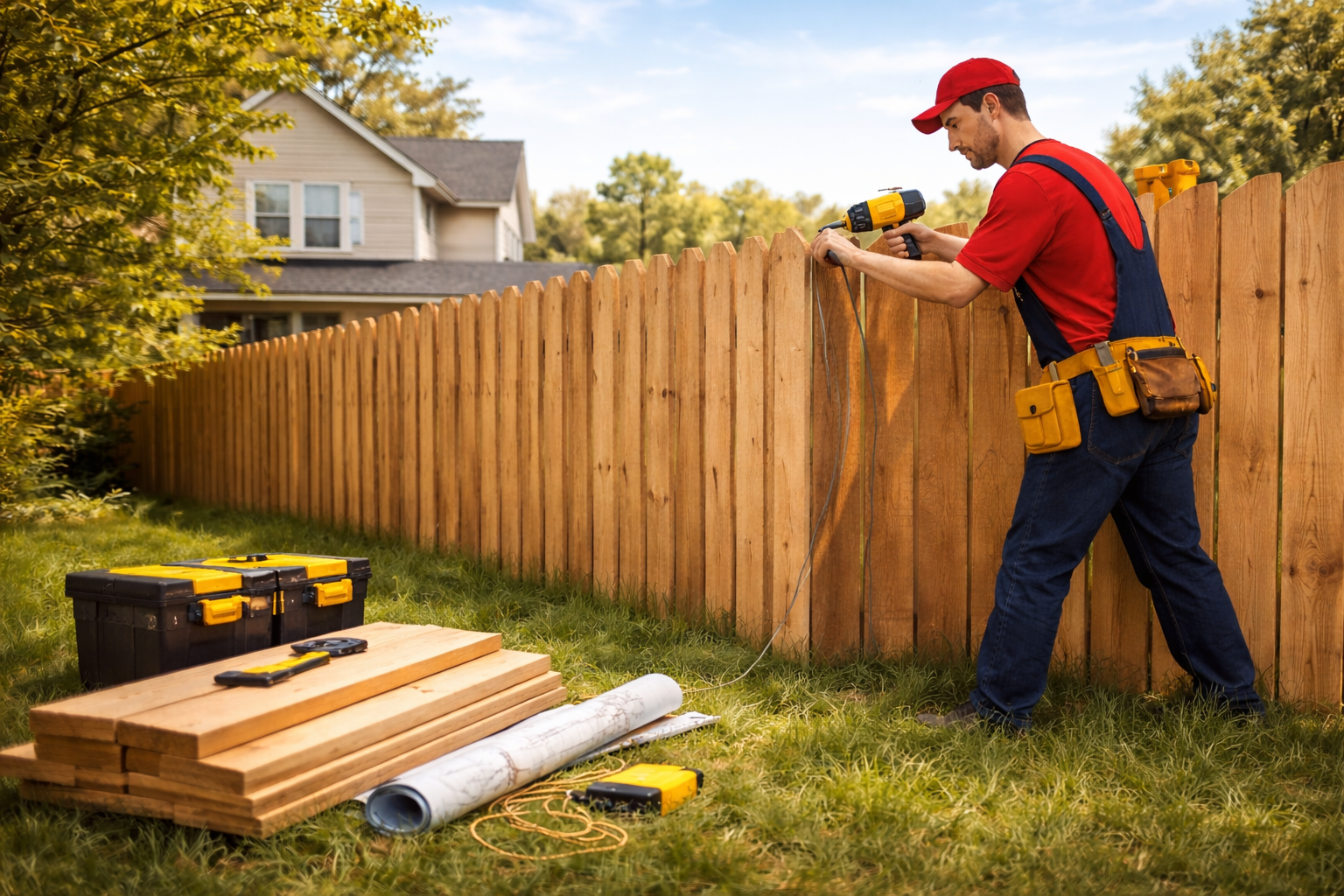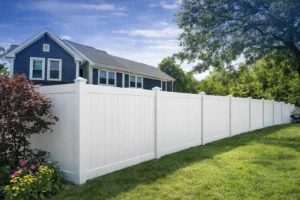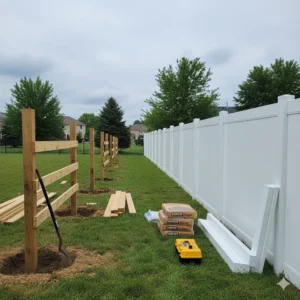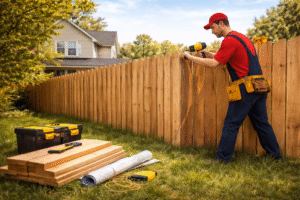If you live in Buffalo, NY, you know the weather here can be really tough on things outside, like fences. Winters bring heavy snow and freezing cold, while summers can be very humid with occasional storms. Because of this, choosing the best fence materials for Buffalo NY climate needs some extra thinking.
A fence isn’t just something pretty to look at, it keeps your property safe, gives you privacy, and can even make your home look nicer. But with Buffalo’s weather, not all fences last for a long time.
In this article, we will look at the best fencing options that handle Buffalo’s harsh weather. We will talk about weather-resistant fencing Buffalo homeowners trust, and discuss the good and bad things about popular fence materials. If you are putting up a new fence or replacing an old one, knowing which materials work well in cold weather will help you choose wisely.
Understanding Buffalo’s Climate Challenges for Fencing
Before we talk about fence materials, it’s important to understand why Buffalo’s weather makes fencing difficult. The area is known for:
- Long, harsh winters with temperatures often below zero
- Lots of heavy snow that can put weight on fences
- Freeze-thaw cycles that make the ground move and shift
- High humidity in summer, which can cause wood to rot or metal to rust
- Sometimes very strong winds that can damage fence posts and panels
Because of these problems, your fence needs to be strong and tough. Materials that work in milder places might warp, rot, crack, or rust here.
Top Fence Materials Suited for Buffalo’s Climate
Let’s check out the best fencing materials for Buffalo’s extreme weather and see how they handle these tough conditions.
Vinyl Fencing
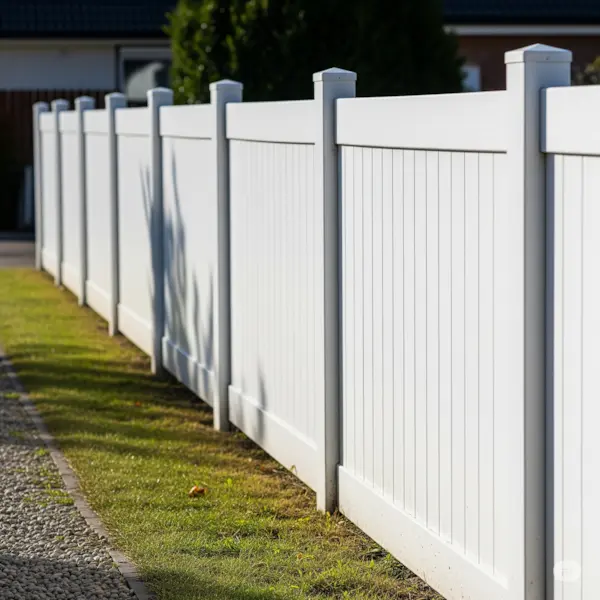
Vinyl fencing has become very popular in places with tough weather, and for good reasons.
Advantages:
- Very weather-resistant fencing Buffalo owners like because vinyl doesn’t soak up water, so it doesn’t rot or warp
- Doesn’t fade or crack easily, even in sunlight
- Easy to clean and needs less work than wood
- Comes in many styles and colors, some look like real wood
Disadvantages:
- Can get brittle in very cold weather, but new vinyl has stuff added to help with cold
- Heavy snow or ice can crack it if the fence isn’t supported well
Why it’s great for Buffalo:
Because vinyl doesn’t soak up water, it’s great for Buffalo’s freeze-thaw cycles and heavy snow. Look for cold-weather fencing with UV protection and strong impact resistance.
Aluminum Fencing
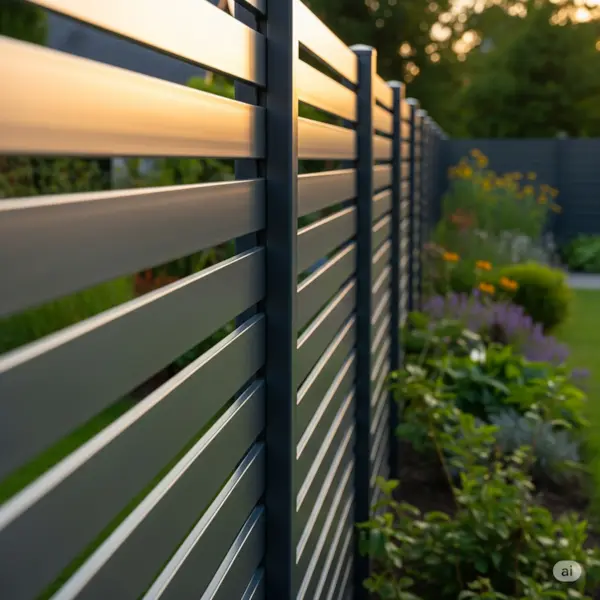
Aluminum fencing is another good choice for Buffalo’s weather.
Advantages:
- Lightweight but strong, it won’t rust or corrode
- Needs very little maintenance, no painting or sealing
- Can look like fancy wrought iron without the upkeep
- Can handle wind and heavy snow without bending
Disadvantages:
- Doesn’t offer much privacy because it usually has open designs
- Can dent if hit hard
Vinyl vs Aluminum:
If you are trying to decide between vinyl and aluminum, aluminum is stronger against dents and heavy hits but doesn’t give much privacy. Vinyl gives you more privacy and style options but can get brittle in the cold. Both are good choices for frost-proof fencing.
Pressure-Treated Wood
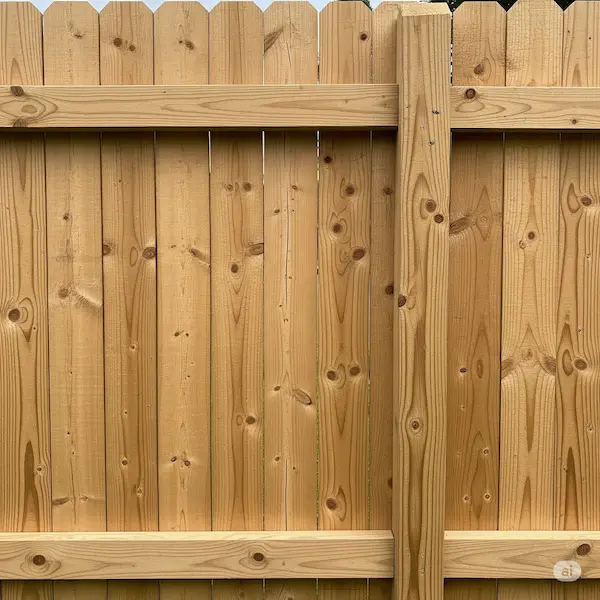
Wood has been a fence favorite for a long time, but in Buffalo’s weather, wood that isn’t treated won’t last.
Advantages:
- Natural look that fits well with plants and gardens
- Usually affordable and easy to find
- Pressure-treated wood is soaked with chemicals that stop rot and bugs
Disadvantages:
- Needs regular care like sealing, staining, or painting to keep water out
- Can warp or crack if not cared for
- Frost can move the ground and make posts unstable
Why it’s still an option:
If you love the look of wood and are ready to maintain it, pressure-treated wood can survive Buffalo’s weather if taken care of properly. It’s a good choice if you want a natural style but are ready for yearly upkeep.
Composite Fencing
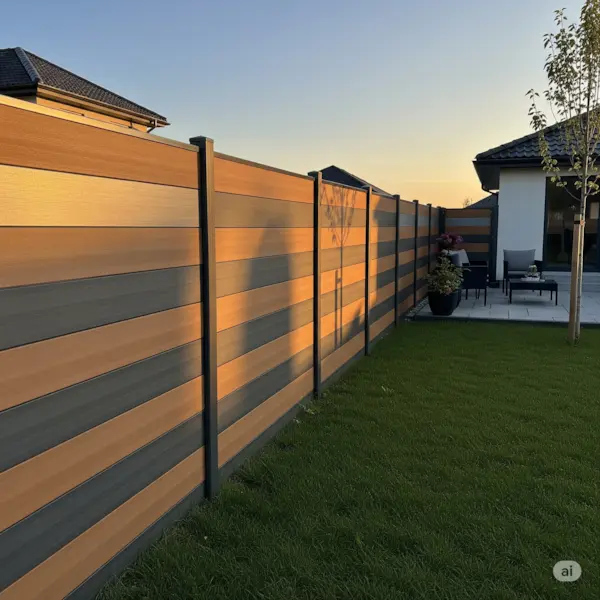
Composite fencing mixes wood fibers and plastic to get the best of both.
Advantages:
- Doesn’t rot, warp, or get damaged by bugs
- Needs less care than wood, no staining or sealing
- Stands up well in cold and wet weather, great for frost-proof fencing
- Comes in different colors and textures, often looking like wood
Disadvantages:
- Costs more upfront than vinyl or wood
- Some products can fade after long sun exposure
Why composite is ideal:
If you want the look of wood but don’t want the hard work, composite fencing is a great pick. It handles Buffalo’s freeze-thaw cycles and moisture well.
Chain Link with Vinyl Coating
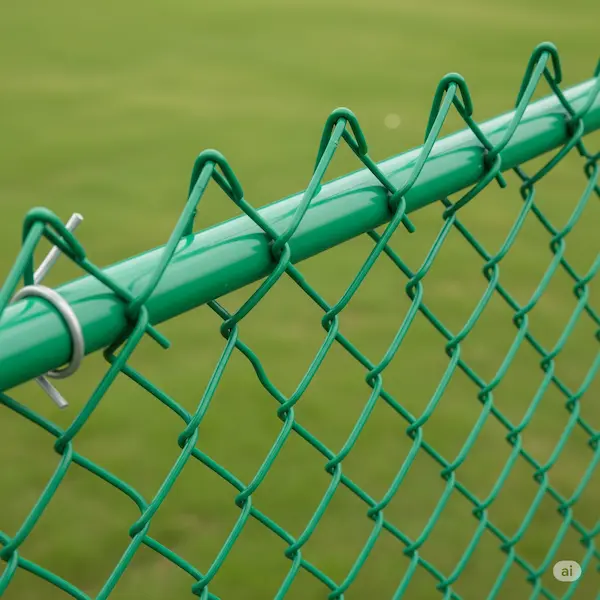
Chain link fences might not seem fancy but are very useful in some Buffalo situations, especially with vinyl coating.
Advantages:
- Very strong and needs little care
- Vinyl coating protects metal from rust caused by snow and humidity
- Costs less and installs fast
Disadvantages:
- Gives little privacy without adding slats or plants
- Looks more practical than pretty
Best use cases:
Good where security and marking boundaries matter more than privacy or looks, like businesses or yards with extra privacy features.
Comparison Table: Fence Materials for Buffalo Climate
| Material | Durability in Cold Weather | Maintenance Level | Privacy | Cost Estimate | Ideal For |
|---|---|---|---|---|---|
| Vinyl | High | Low | High | Moderate | Homeowners wanting low upkeep |
| Aluminum | Very High | Very Low | Low | Moderate-High | Elegant, strong, low maintenance |
| Pressure-Treated Wood | Moderate | High | High | Low-Moderate | Traditional look with upkeep |
| Composite | High | Low-Moderate | High | High | Durable wood alternative |
| Chain Link (Vinyl Coated) | Very High | Very Low | Low | Low | Security and commercial use |
Installation Tips for Long-Lasting Fences in Buffalo
Even the best fence materials can fail if not installed right. Here are some important tips:
- Deep Post Setting: Posts should be set deep below the frost line, usually 48 inches or more in Buffalo, to stop them from moving or leaning.
- Quality Fasteners: Use stainless steel or galvanized screws and nails to stop rust.
- Proper Drainage: Make sure the ground around the fence drains well so water doesn’t sit there.
- Snow Load Considerations: In places with heavy snow, reinforce fence panels or use materials like aluminum that handle weight well.
Following these tips will help your fence last through Buffalo’s cold winters and hot summers.
Maintenance Tips for Fences in Buffalo’s Climate
Even tough fences need care to stay strong and good-looking. Buffalo’s weather can be hard on fences, so here are some helpful tips:
Vinyl and Aluminum
- Clean once a year with a garden hose and mild soap to wash off dirt, salt, and debris from snow and rain.
- Check for cracks in vinyl or dents in aluminum, especially after storms or snow.
- Oil metal gate hinges sometimes to stop rust and squeaking.
Wood and Composite
- Seal or stain wood fences every 2-3 years to protect from water and sun. Composite fences need less care but check what the maker says.
- Look for signs of rot or bugs and fix problems fast.
- Remove leaves, snow, or dirt near the base to keep moisture away.
Chain Link
- Fix small rust spots right away with rust remover and touch-up paint.
- Check the vinyl coating for cracks or peeling and fix if needed.
When planning your fence installation, it’s important to comply with local regulations. For up-to-date rules on fence heights, setbacks, and permits in Buffalo, visit the City of Buffalo’s official website on building codes: City of Buffalo Fence Regulations.
Conclusion
A fence is a long-term investment that makes your property better and more enjoyable. By choosing the right material and having it installed and cared for properly, you will have a fence that stands strong through Buffalo’s hardest seasons.
To learn more about installation options, read our blog post: DIY Fence vs. Professional Installation – What’s the Best Choice for Your Home or Business?
Frequently Asked Questions (FAQ)
The best fence materials for Buffalo NY climate are vinyl, aluminum, composite, and pressure-treated wood. These materials are strong and resist cold weather problems like heavy snow, freeze-thaw cycles, and moisture.
Weather-resistant fencing Buffalo homeowners pick can stand up to tough winter weather like frost, ice, and lots of snow. Materials like vinyl and aluminum don’t crack, warp, or rust, making them great for cold-weather fencing.
Both vinyl and aluminum are good for Buffalo’s weather. Vinyl gives more privacy and style choices, while aluminum is stronger and doesn’t rust. Choosing between vinyl vs aluminum depends on how much privacy you want and what style you like.
Wood fences, especially pressure-treated ones, can last if you take good care of them with regular sealing and repairs. But wood is more likely to get water damage and move because of frost compared to weather-resistant fencing Buffalo options like vinyl or composite.
Maintenance depends on the material. Vinyl and aluminum need little work, mostly cleaning and checking. Wood fences need sealing often and checks for rot. Composite fences need occasional cleaning. Chain link with vinyl coating should be checked for rust or damage.
Looking for a fence that truly stands up to Buffalo’s tough climate?
At All Pro Fence Buffalo, we build strong, safe, and stylish fences made to last a lifetime. With over 10 years of experience serving Buffalo, NY, we offer expert installation, high-quality materials for DIY projects, and custom designs just for your property.
Call us today at 716-452-9399 or visit allprofencebuffalo.com to start building your durable, weather-resistant fence.

